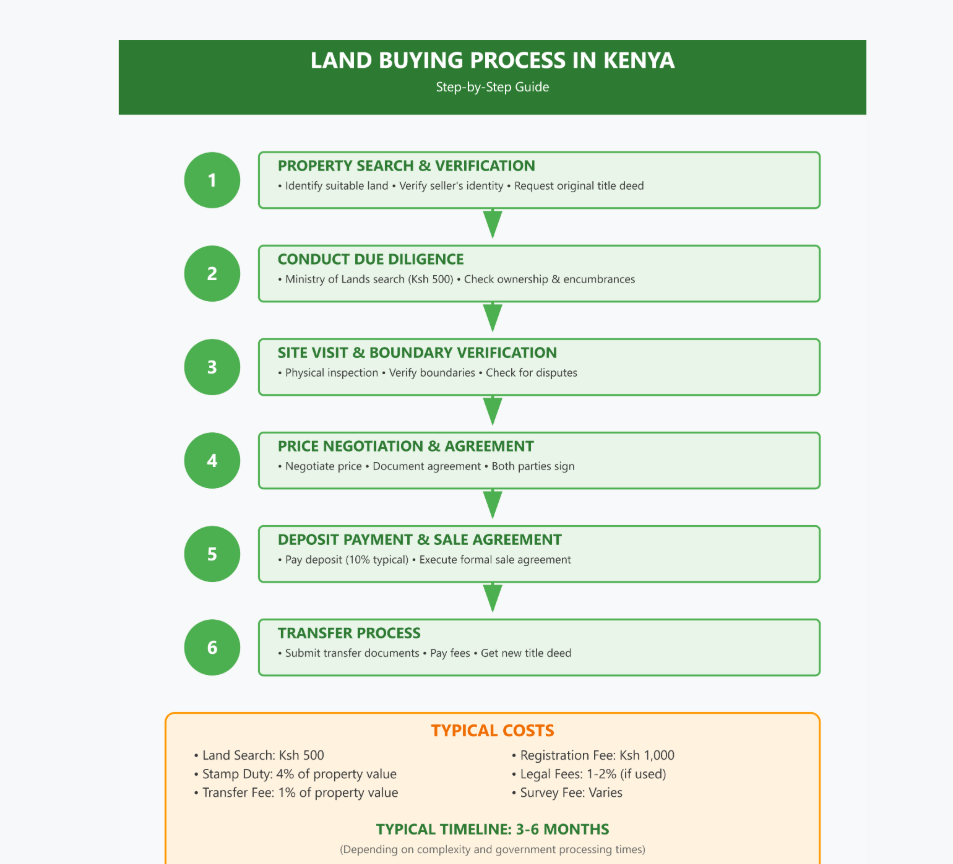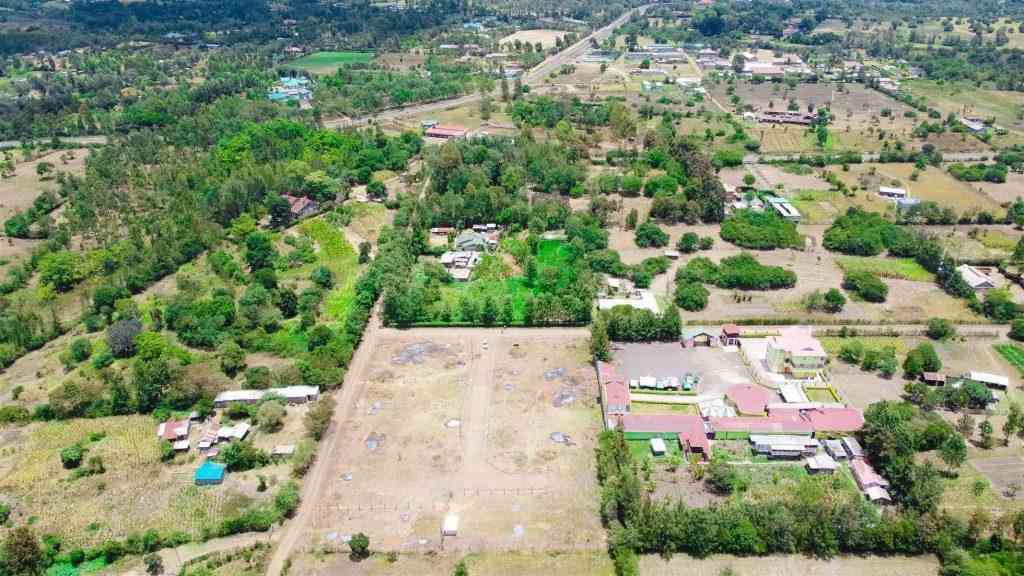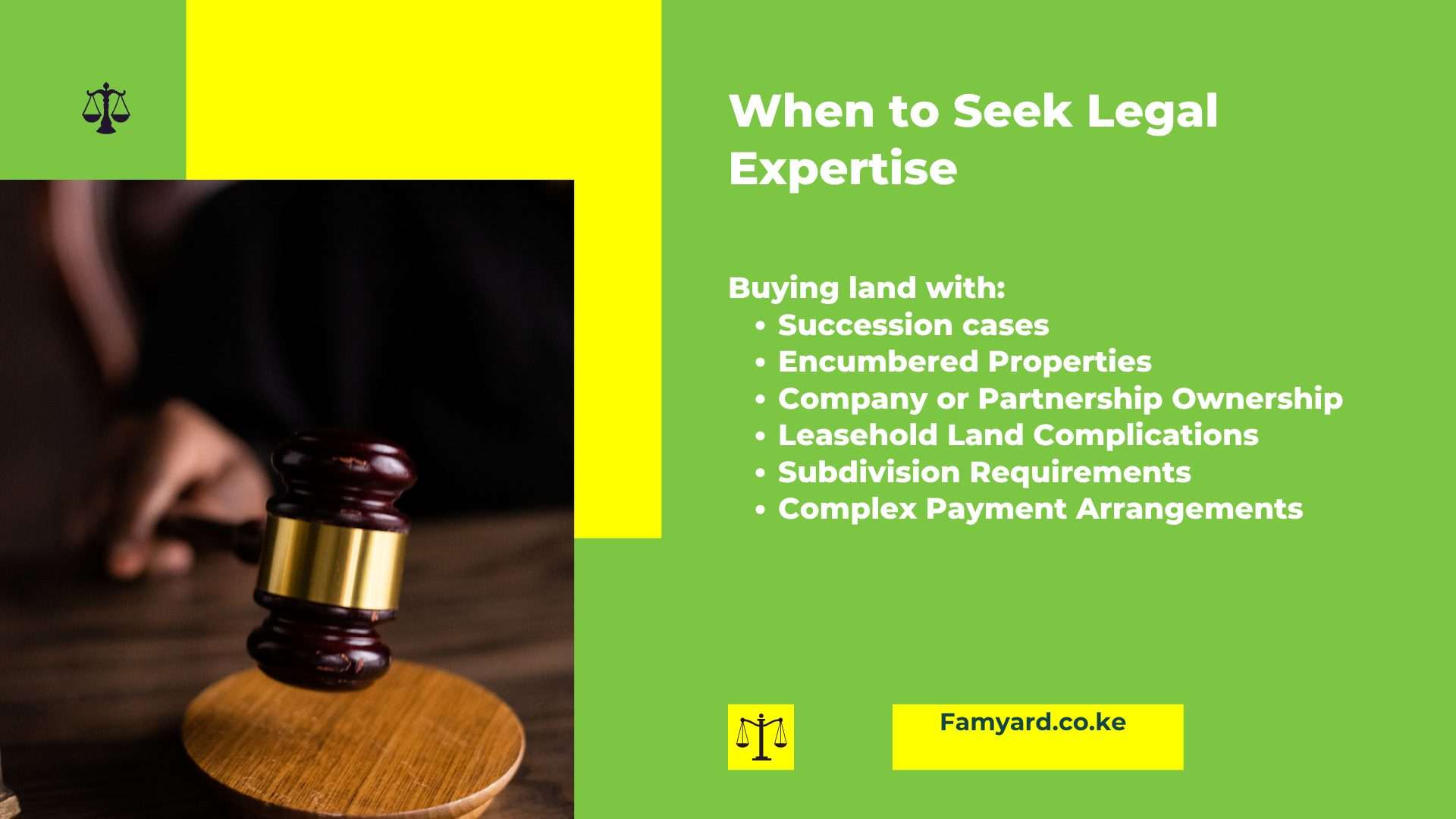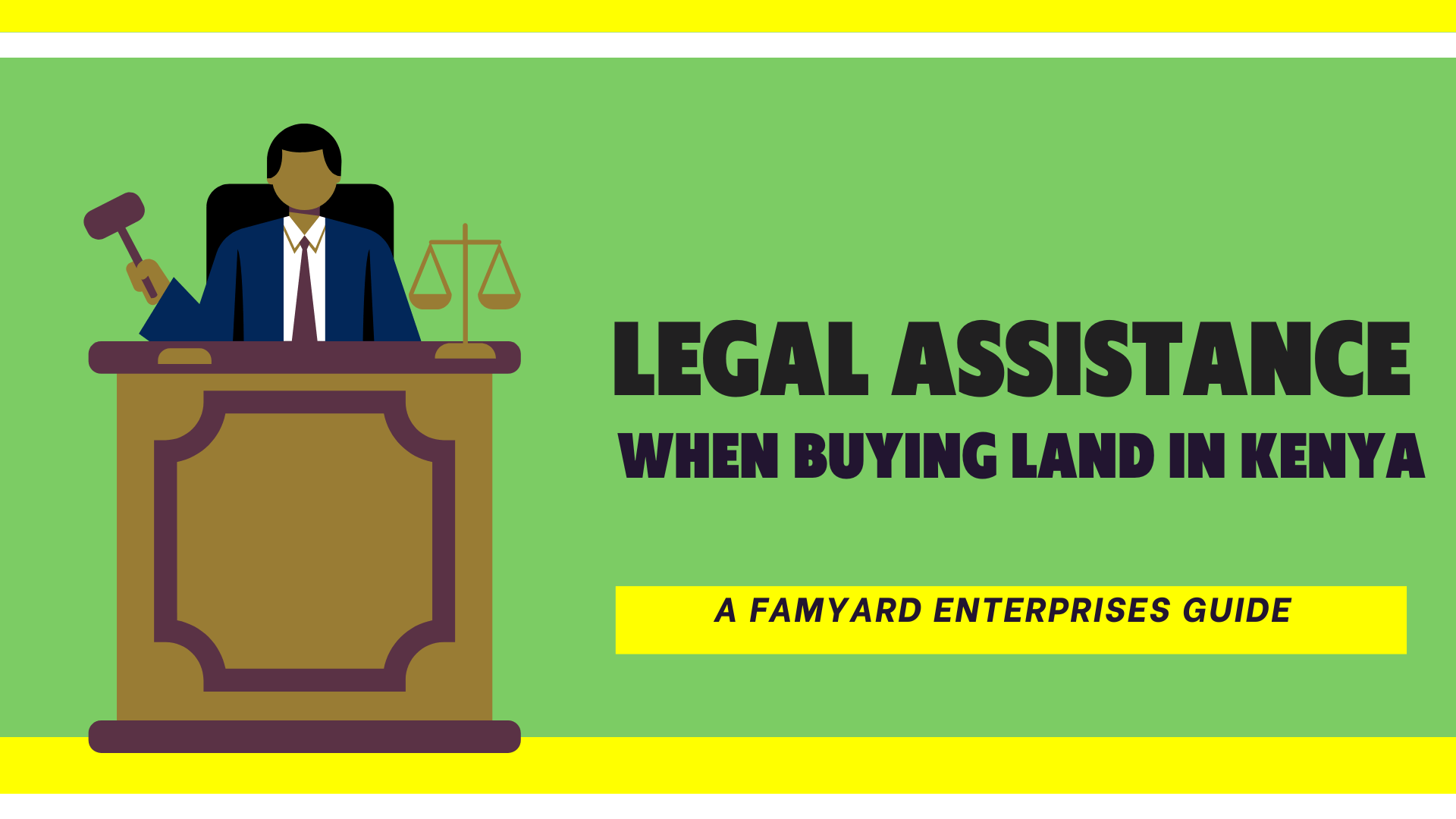Buying land in Kenya can be a straightforward process if you understand the legal requirements involved. While you can handle most of the procedures independently, certain situations demand legal expertise to protect your investment. This guide explores the standard land purchase process in Kenya and highlights instances where legal assistance is non-negotiable.

Land Purchase Process in Kenya
Property Search and Verification
The first step is identifying suitable land through real estate agents or direct contact with sellers. If you opt for the latter, always verify the seller’s identity and ensure they have legitimate ownership rights. Request the original title deed and cross-check details with the Ministry of Lands records.
Conduct Due Diligence
Once you have identified an ideal piece of land, visit the Ministry of Lands to search the property using the title number. This search reveals crucial information, including current ownership, any charges or encumbrances, and the land’s legal status. The official search costs approximately Ksh 500 and is valid for 30 days.
Site Visit and Boundary Verification
The next step is to physically inspect the property with the seller present. You should verify that the boundaries match the title deed description and check for any disputes with neighbors. Also, look for permanent structures, access roads, and proximity to essential services.

Price Negotiation and Agreement
If you are satisfied with the property’s legitimacy, negotiate the purchase price to get the best price. Ensure that you document your agreement in writing, including payment terms, possession dates, and any conditions for reference in case of any dispute that may arise with the seller. Remember that both parties should sign this preliminary agreement to enhance its validity.
Deposit Payment and Sale Agreement
Once you have gotten to a price agreement, pay a deposit, which is usually 10% of the purchase price, depending on the seller, and execute a formal sale agreement. This document should outline all terms, conditions, and timelines for completion of the sale.
Transfer Process
Lastly, submit the transfer documents to the Ministry of Lands, including the signed transfer form, consent to transfer (if required), and payment receipts. The ministry will process the transfer and issue a new title deed in your name.
Instances Where You Can Proceed Without a Lawyer
You can handle the land purchase independently when:
- The land has a clear, unencumbered freehold or leasehold title
- The seller is the registered owner with no succession issues
- The property has no boundary disputes or legal complications
- You’re dealing with reputable real estate companies
- The transaction involves agricultural land in rural areas with straightforward ownership
- Both parties agree on all terms without complex negotiations

When Legal Help Becomes Crucial During Land Acquisition
Succession Cases
If the seller inherited the land, succession laws apply. In this case, you may need a lawyer to help you navigate the complex succession process, ensuring all legal heirs consent to the sale and that proper succession certificates exist.
Company or Partnership Ownership
When purchasing from companies or partnerships, legal expertise ensures proper board resolutions, compliance with company law, and verification of authority to sell.
Encumbered Properties
These are properties with existing mortgages, charges, or legal disputes, which may be complex to navigate independently. Therefore, you need to have a lawyer to provide legal intervention to clear encumbrances before transfer.
Leasehold Land Complications
Government leasehold land often involves consent requirements from the Commissioner of Lands, which are complex, especially without any background in the legal frameworks involved. Hence, you’ll need a lawyer to expedite this process and ensure compliance with leasehold conditions.
Subdivision Requirements
If the land needs subdivision before sale, a lawyer can help you handle the lengthy subdivision process, including approvals from relevant authorities and compliance with planning regulations.
Complex Payment Arrangements
Lastly, you may require legal representation for land transactions involving installment payments, developer financing, or international buyers, which require legal documentation to protect all parties’ interests.
Cost Considerations
Legal fees often range from 1-2% of the property value, which can be saved by independent purchases but carry higher risks. However, government fees for searches, consents, and transfers remain constant regardless of whether you use legal representation.
Cost Breakdown:
- Land search: Ksh 500
- Stamp duty: 4% of property value
- Transfer fees: 1% of property value
- Registration fee: Ksh 1,000
- Legal fees (if applicable): 1-2% of property value
Conclusion
For straightforward rural land purchases with clear titles, proceeding independently is feasible with careful due diligence. However, urban properties, complex ownership structures, or any red flags warrant professional legal assistance. The cost of legal fees pales compared to potential losses from fraudulent transactions or legal complications.
Remember that land fraud remains prevalent in Kenya. When in doubt, consult a qualified lawyer specializing in property law to safeguard your investment.
Ready to Buy Land in Kenya?
Don’t navigate this process alone! Contact us today and get expert guidance throughout the land buying process.
